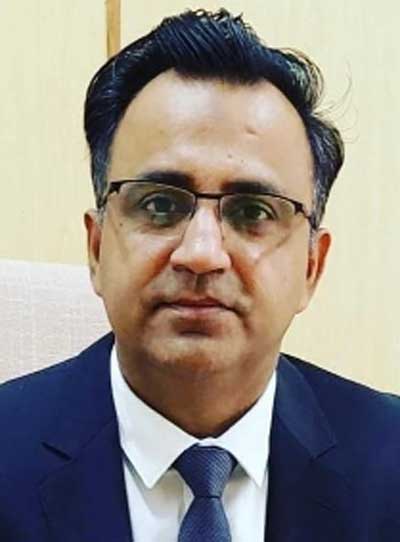
In the realm of education, Pakistan offers promising opportunities for learning and professional development. Currently, a sufficient number of PhD scholars are enrolled in public and private universities and higher degree awarding institutes, reflecting the enthusiastic interest of the young population in pursuing advanced studies. Pakistan’s educational standards have earned a commendable global rating. However, there is room for improvement to ensure global competition with quality education (overall score of 9.2 by Quacquarelli Symonds (QS), a British ranking agency). This rating indicates the need for Pakistani scholars to either access quality education within the country or explore international avenues to enhance their contemporary studies.
Pakistan’s Higher Education Commission (HEC) stands as a beacon of educational progress, making significant contributions over the past decades. Recognising the evolving trends in the academic landscape, HEC has initiated a transformative project called the “International Research Support Initiative Program (IRSIP).” This initiative offers a six-month research fellowship abroad to full-time PhD students in Pakistan.
The primary objective of this program is to provide extensive exposure to PhD scholars, enriching their research endeavours with global insights. IRSIP opens doors to a multitude of opportunities, including enhanced research skills, increased visibility, cultural exchange, networking prospects, access to expertise and resources, collaborative ventures, and impactful publications. Through these diverse experiences, IRSIP empowers scholars, fostering professional development and facilitating the creation of high-quality, globally relevant research outcomes.
The narrative takes a compelling turn with Dr. Ghulam Raza Bhatti, a veteran educationist and Vice Chancellor of Shaikh Ayaz University, Shikarpur, who moderated a mega educational program at Sukkur IBA University, Sindh, wherein the stakeholders of education and political top figures and general masses were attending the interested dialogue.
Dr. Bhatti shared eye-opening insights into the IRSIP beneficiaries, revealing stark statistics from various provinces. In the current year, a meager number of scholars seized this opportunity: 252 from Azad Jammu and Kashmir, 118 from Balochistan, 79 from FATA, 32 from Gilgit-Baltistan, 119 from Islamabad territory, 1210 from Khyber Pakhtunkhwa, nearly 4100 from Punjab, and only 213 from Sindh province availed the IRSIP facility during their PhD studies, he added.
These figures prompted questions – was there a lack of need, or were scholars uninformed? During the dialogue, it was highlighted that the HEC Chairman and the team have diligently urged Vice Chancellors to distribute IRSIP info among their scholars as sufficient budgetary provisions and technical assistance are abundant, yet optimistic IRSIP enrollment in the country remained pending.
HEC’s statistics further shed light on the disparities in scholarship distribution. Despite substantial enrollments nationwide, fields such as Arts, Humanities, and Social Sciences recorded minimal IRSIP applications.
In contrast, efforts were underway to bridge this gap. Social researchers were actively encouraged to apply, aiming to provide them equal footing with scholars from fields like Management Science, Political Science, Information Technology, Computer Science, and Natural Sciences within the IRSIP program. A bird’s eye view of IRSIP subject-wise information is tabulated (See table).
The data mentioned above underscores an urgent need to inspire scholars to seize this golden opportunity, immersing themselves in the best practices of the global academic community. A collective and collaborative approach, orchestrated at both university and HEC levels, is imperative to ignite scholars’ interest. Implementing diverse strategies, such as organising awareness campaigns, workshops, seminars, and informational sessions highlighting the myriad possibilities within IRSIP, can captivate scholars. Clear communication is paramount, facilitated by step-by-step guidelines from IRSIP alums, university faculty, and management.
Experienced mentors can be pivotal, helping scholars refine their research proposals and successfully navigate the application process. Additionally, recognising and celebrating the achievements of IRSIP scholars can further fuel interest in the program. It is imperative to highlight here that it is not only the scholar himself; it is also mandatory for the supervisor to strive hard and counsel them to seek foreign opportunities to improve the research work. The supervisor can potentially steer the scholar toward the right path, being the mentor and having sufficient hands-on experience.
Embracing global best practices, HEC’s proactive outreach to every province, showcasing the program’s success stories, and simplifying the application process can be transformative phases of the under-reference journey. Through these unified efforts, Pakistan’s education sector can yield significant results with a significant impact. In addition, the participation of PhD scholars in such programs will draw the attention of government and donor agencies, catalysing investments in Pakistan’s education sector and offering multiple opportunities.
These novel initiatives promise increased education funding, professional development, technological integration, enhanced infrastructure aligned with global standards, progressive research and development trends, community engagement, policy reforms ensuring continuous growth, and promoting multicultural knowledge. It also signifies an inclusive approach, laying the foundation for sustainable socio-economic development in Pakistan’s higher education sector.
IRSIP isn’t merely a fellowship; it’s a pathway toward a future where Pakistani education stands tall alongside global educational giants. Through collaborative endeavours, shared aspirations, and unwavering determination, Pakistan’s education sector can embrace the fruits of international collaboration, paving the way for a sustainable, socio-economically empowered future. This paper will invite the attention of potential scholars, faculty members, and relevant stakeholders to gear up the collective efforts in the country’s more significant interest.



